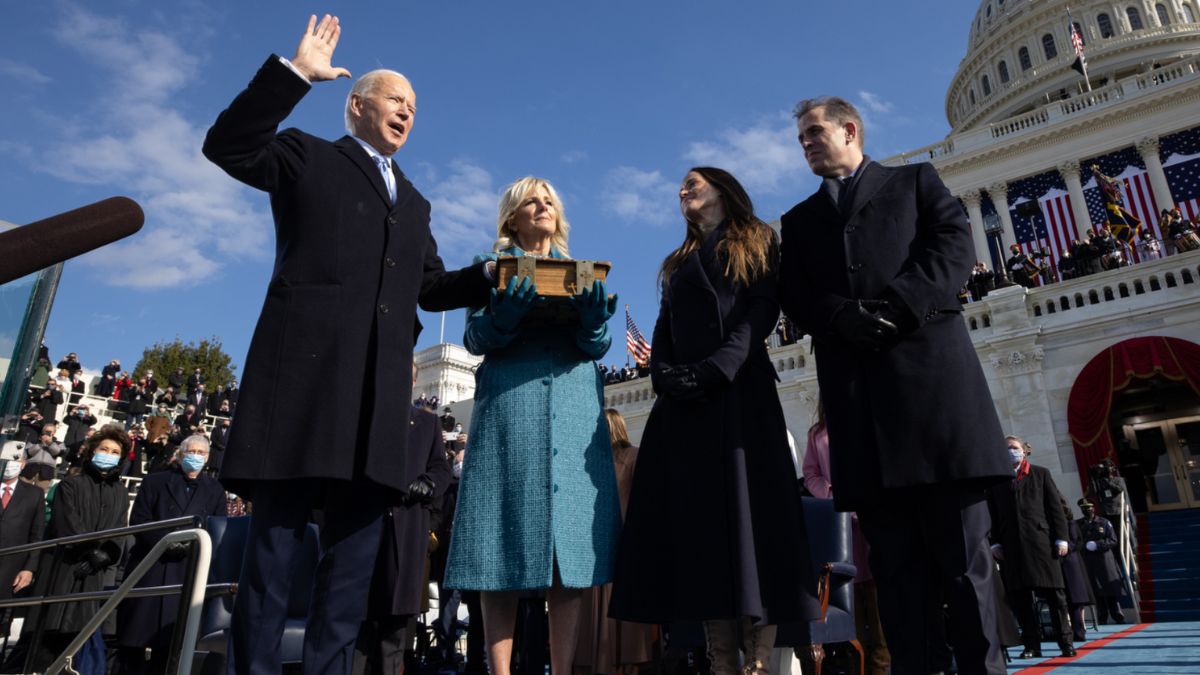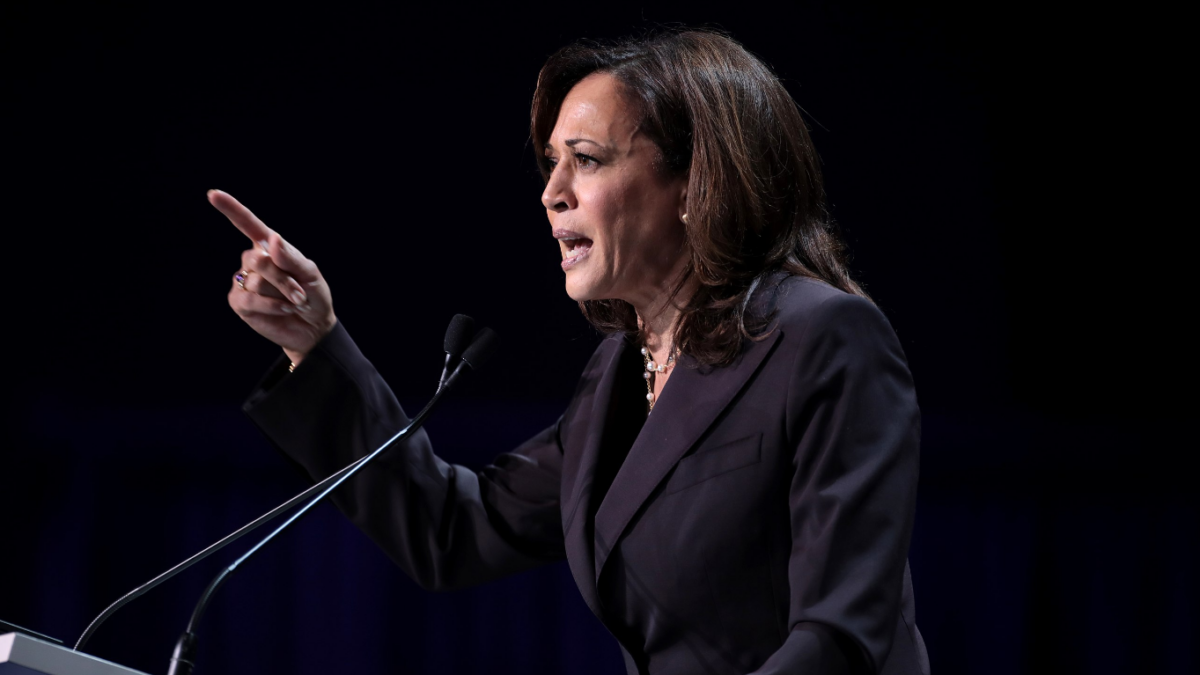The Democrat-controlled Senate Finance Committee is playing politics with the Hunter Biden IRS whistleblower, a letter sent Monday to the heads of the congressional oversight committees charges. But besides outing the partisan gamesmanship of the Senate committee, the whistleblower’s attorneys signal a solution to House Republicans: Use Section 6103(f)(4) of the Internal Revenue Code to sidestep Senate Democrats’ efforts to thwart the IRS whistleblower.
According to Monday’s letter, obtained by The Federalist, while attorneys for the Internal Revenue Service (IRS) supervisory special agent have been working diligently for the last month to arrange for their client to testify on a bipartisan, bicameral basis to the House Ways and Means Committee and the Senate Finance Committee, “the Senate Finance Committee leadership has been unwilling to even consider a joint interview.” Nonetheless, the whistleblower remained committed to working with the Democrat-controlled Senate Finance Committee since it had indicated a willingness to coordinate scheduling to allow the whistleblower to testify on two consecutive days.
But then, after scheduling their client’s private testimony before the House Ways and Means Committee for Friday, May 26, the Senate Finance Committee refused to commit to interviewing the whistleblower the prior day to allow the questioning to take place on two consecutive days. Thus, on Monday, the whistleblower’s attorneys declared, in essence, enough is enough, in their dispatch to the Senate and House: “Our client intends to appear on Friday, May 26th for the scheduled testimony agreed to by the House Ways and Means Committee,” the letter declared, then stressing that the whistleblower is unlikely to agree to testify separately before the Senate on another date.
Significantly, the letter from the IRS supervisory special agent’s attorneys added that their “client would welcome appropriately designated Senate staff to join and participate” in the House hearing. This invitation is huge because Section 6103(f)(4) of the Internal Revenue Code authorizes the chair of the House Ways and Means Committee to “designate or appoint” an agent to receive confidential tax information.
Because Republicans control the House Ways and Means Committee, its chair, Jason Smith, could designate Senate staffers to “join and participate” in the whistleblower’s House-transcribed interview. If Smith is wise, he will take the hint and designate as agents under Section 6103(f)(4) multiple Senate staffers for both Democrat and Republican members of the Senate Finance Committee.
This would allow the whistleblower to achieve what he wanted: to be questioned on a bipartisan and bicameral basis. Additionally, by designating multiple Senate staffers, not merely staffers for the chair and ranking member, the House Ways and Means Committee can ensure Sen. Chuck Grassley’s top investigator participates in the transcribed interview — something Democrat Ron Wyden, the Senate Finance Committee chair, was blocking.
As the Washington Examiner reported Monday, the IRS whistleblower had included Grassley in his various correspondence to the committees because the Iowa senator is co-chair of the Whistleblower Protection Caucus and is “more trusted than any other public official by whistleblowers.” Grassley and his investigators are also “subject matter experts on both whistleblower protections and the Biden family business controversies,” as well as “very familiar with the specific statutes protecting sensitive tax information.”
Yet Wyden, who also serves as a co-chair with Grassley on the Whistleblower Protection Caucus, has refused to allow Grassley to participate in the Senate’s probe of the whistleblower’s claims.
But now, unless the Democrat-controlled Senate Finance Committee quickly reverses course and agrees to a joint — or, at minimum, consecutive — interview of the whistleblower, it won’t be Wyden deciding anything. It will be the Republican House Ways and Means chair.
Whether the whistleblower’s Monday letter jolts Wyden and his fellow Democrats into action remains to be seen. Either way, Smith should designate Senate staffers, including Grassley’s lead investigator, as agents for the House Ways and Means Committee to ensure the fullest exposure possible for the IRS whistleblower’s testimony.
That move might also teach Democrats not to play political games with whistleblowers who go to great lengths to ensure bipartisanship — as was done in mid-April when the IRS whistleblower’s attorneys first reached out to both Republican and Democrat leaders with their client’s offer to provide testimony of detailed “examples of preferential treatment” “improperly infecting decisions and protocols” applied during the investigation of a “high-profile,” “politically connected” individual. Unnamed sources later identified the IRS target as Hunter Biden and claimed that “specific DOJ employees placed strictures on questions, witnesses and tactics investigators may be allowed to pursue that could impact President Biden.”
The whistleblower’s bipartisan pledge was then put into action when his attorneys, Tristan Leavitt of Empower Oversight and Mark Lytle of Nixon Peabody, LLP, worked with both the Republican-controlled House Ways and Means Committee and the Democrat-controlled Senate Finance Committee to be designated the respective committee’s agents with authority to inspect Hunter Biden’s tax returns and related information under Section 6103(f)(4).
After learning the extent of their client’s evidence concerning the alleged misconduct involved in the Hunter Biden investigation, Leavitt and Peabody on May 5, 2023, provided separate “proffers” to both the House Ways and Means and Senate Finance Committees. In those proffers, the attorneys summarized the substance of their client’s disclosures, paving the way for the client to testify before both committees.
But while the whistleblower remains committed to bipartisanship, Monday’s letter to the committees’ chairs and ranking members, as well as the heads of the Judiciary Committees and Grassley, exposed the delays and other disconcerting tactics undertaken by the Democrat-led Senate Finance Committee. And while the whistleblower lacks the power to force the Senate Democrats to play fair, as his attorneys highlighted in their letter, Chairman Smith of the House Ways and Means Committee is not so constrained.
Let’s hope Smith takes the hint.









